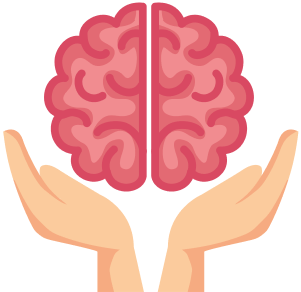Are you or someone you know experiencing intense emotional reactions to specific sounds? If so, taking a Misophonia test can be a helpful first step in identifying potential signs of Misophonia. The test consists of a series of questions related to common experiences among people with Misophonia, such as extreme reactions to chewing, breathing, or clicking sounds.

On average, you will need to go through around 20 questions, and in some cases, you might need to ask a family friend for help.

Misophonia is diagnosed by a licensed mental health professional through a clinical interview and assessment of symptoms. However, taking a Misophonia test can be a useful first step in identifying potential signs of Misophonia and deciding whether to seek professional help.
Misophonia is a condition that can greatly affect quality of life and interpersonal relationships. It is typically diagnosed by a licensed mental health professional through a clinical interview and assessment of symptoms. However, taking a Misophonia test can be a useful first step in identifying potential signs of Misophonia and deciding whether to seek professional help.
Our Misophonia online test is quick, private, and completely free. It can be taken online from the comfort of your own home, without the need for a referral or appointment. It's important to note that our test is not a diagnostic tool and cannot replace a clinical evaluation by a licensed mental health professional. However, it can provide preliminary insights and help you decide whether to seek further evaluation or treatment.

Individuals with Misophonia may also experience comorbidities such as anxiety disorders, obsessive-compulsive disorder (OCD), and mood disorders. Understanding these related conditions can be crucial as they often impact the severity of Misophonia symptoms and treatment options.
It's important to be aware of these related conditions as they can often influence the management and treatment of Misophonia.
We are committed to providing comprehensive resources and support for individuals with Misophonia and their loved ones. Take our Misophonia test today to start your journey towards better mental health.

Misophonia is a disorder in which certain sounds trigger emotional or physiological responses that some might perceive as unreasonable given the circumstance. These triggered responses can range from anger and annoyance to panic and the need to flee.
Yes, Misophonia and anxiety disorders can have overlapping symptoms, such as heightened emotional responses and panic attacks. This can make it difficult to differentiate between the two conditions and may lead to misdiagnosis. A thorough evaluation by a mental health professional is essential to get an accurate diagnosis.
Only a licensed mental health professional can diagnose Misophonia or an anxiety disorder. If you're experiencing symptoms of either condition, it's important to seek an evaluation to receive an accurate diagnosis and appropriate treatment.
A Misophonia episode can trigger a range of reactions. Most commonly, these include anger, the desire to escape, or even rage. It's important to note that the severity and type of reaction can vary greatly from person to person.
Misophonia is typically diagnosed through a clinical interview with a licensed mental health professional. The mental health professional may also use assessment measures and talk to the person's previous healthcare providers and family and friends.
Misophonia cannot be cured, but it can be effectively managed with the right treatment, which may include therapy, sound therapy, or a combination of both. While some people may experience a complete remission of symptoms, others may continue to experience symptoms but at a more manageable level.
The prevalence of Misophonia is not well-established due to lack of large-scale epidemiological studies, but small scale studies and surveys estimate that it may affect around 15-20% of the population to some degree.
Diagnosing Misophonia typically takes several sessions and may involve various assessments. Getting the correct diagnosis can take some time, as the symptoms can be similar to other conditions.